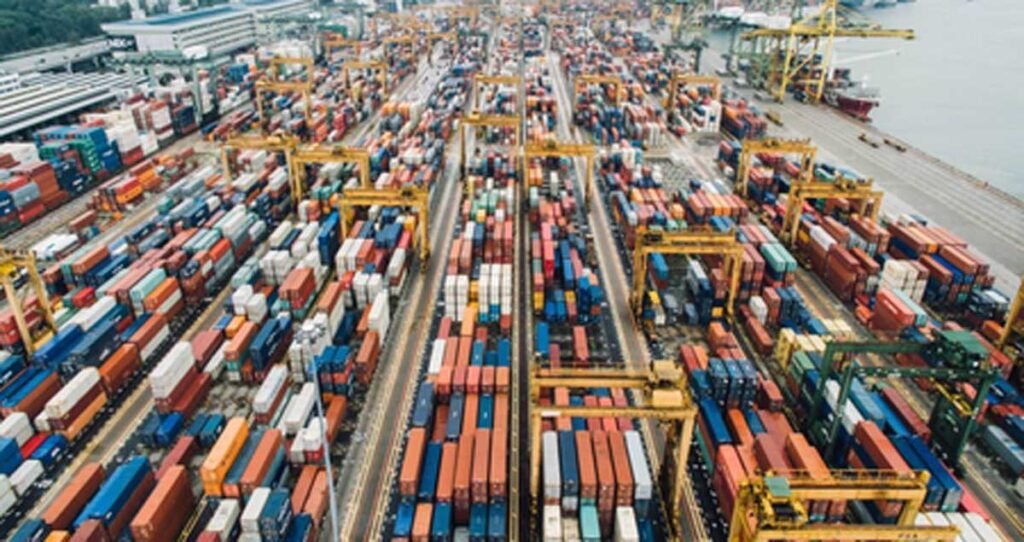Understanding the Sanctions
The United States has imposed sanctions on four companies based in the United Arab Emirates, accusing them of involvement in the sale and shipment of Iranian oil. These companies, all with strong trade links to India, are allegedly part of a network that helps Iran bypass international restrictions on its energy exports.
This move is part of a broader strategy by Washington to enforce its sanctions against Iran, especially concerning its oil industry — a key source of revenue for Tehran. The UAE, known for its open trade routes and business-friendly environment, now finds itself in the spotlight.
The UAE’s Strategic Position in Global Trade
The UAE has long held a reputation as a major logistics and trade hub connecting the East and West. With its advanced infrastructure and access to global shipping lanes, it’s a preferred destination for businesses seeking regional expansion.

These newly sanctioned companies were reportedly using this strategic position to facilitate trade flows that involve Iranian oil, despite global sanctions aimed at curbing Tehran’s nuclear ambitions and regional influence.
The sanctions reflect the growing complexity of global trade, where companies sometimes become entangled in political agendas beyond their control.

The Companies Involved
Though the US Treasury did not disclose extensive details on each firm, the four UAE-based entities are said to have handled shipments either directly or indirectly linked to Iranian crude oil. These firms are also reported to have active trading relations with Indian counterparts, further complicating international diplomacy.
The move is not just a signal to Iran, but a warning to companies globally — especially those operating from neutral trade zones like the UAE — to ensure full compliance with international sanctions frameworks.
What This Means for India-UAE Trade
India and the UAE share a thriving trade relationship, strengthened by the Comprehensive Economic Partnership Agreement (CEPA) signed in 2022. The trade between the two nations crossed $84 billion in 2023, with both countries benefiting from strong energy, tech, and investment ties.

The inclusion of firms with Indian links in this sanctions list could introduce temporary hurdles in cross-border operations, although both nations are expected to work closely to ensure minimal disruptions.
India has traditionally been a major importer of Iranian oil. However, since the US reimposed sanctions on Iran in 2018, India reduced its dependency and increased imports from other countries, including the UAE, Saudi Arabia, and the US itself.
UAE’s Diplomatic Balancing Act
The UAE now faces the challenge of maintaining its strong diplomatic ties with both the US and its regional partners while navigating its role in global commerce.
Abu Dhabi has often walked a tightrope — aligning with Western powers in security and technology while maintaining cordial relations with Iran and India for trade and regional cooperation.
In response to the sanctions, UAE authorities are expected to conduct internal reviews and possibly tighten oversight on trade activities involving sanctioned entities or high-risk regions.
This event may also push the UAE to further modernize and digitize its customs and shipping tracking systems to enhance transparency.
Potential Impact on Local Businesses
For local businesses operating in the import-export and shipping sectors, this development acts as a wake-up call. Firms are now likely to invest more in compliance systems, legal advisory, and transparent trade practices.
Some businesses might temporarily experience delays or reevaluations of their trading partners to avoid unintended violations of global sanctions.
However, the UAE’s proactive economic governance and history of adapting to international expectations suggest it is well-positioned to recover and ensure sustainable, law-abiding growth in the sector.
The Bigger Picture: US Strategy Toward Iran
This action is part of a larger push by the Biden administration to curb Iran’s oil revenue, which Washington claims is being used to fund regional militias and nuclear enrichment programs.
By targeting companies outside Iran — including in UAE, India, and China — the US is aiming to dismantle global networks supporting Tehran. These secondary sanctions are a clear message that non-compliance comes with significant financial and reputational risks.
The goal is not just punitive but also preventive — discouraging firms worldwide from enabling or ignoring Iran’s attempts to bypass sanctions.
The Road Ahead
The sanctioned companies might contest the allegations or appeal through diplomatic channels, and the UAE government will likely take steps to preserve its global reputation as a responsible trading nation.

In the short term, this might lead to more rigorous checks and cross-border transaction reviews. But in the long run, it can contribute to strengthening the region’s compliance culture and align trade practices with global standards.
The UAE’s ability to swiftly adapt and maintain investor confidence, even in the face of external pressures, will once again be tested.
Conclusion
The sanctions on the four UAE-based firms serve as a reminder of the complex intersection between global trade, politics, and compliance. While the immediate implications may cause some disruption, they also present an opportunity for the UAE to enhance its oversight mechanisms and reassert its role as a transparent and trusted global trade hub.
For India and the UAE, these developments will likely spark renewed dialogue around trade security and compliance, reinforcing the need for vigilance, cooperation, and diplomacy in navigating an increasingly complex global economy.
Read More: Fly for Less: UAE Airline Rolls Out 15% Summer Discount














